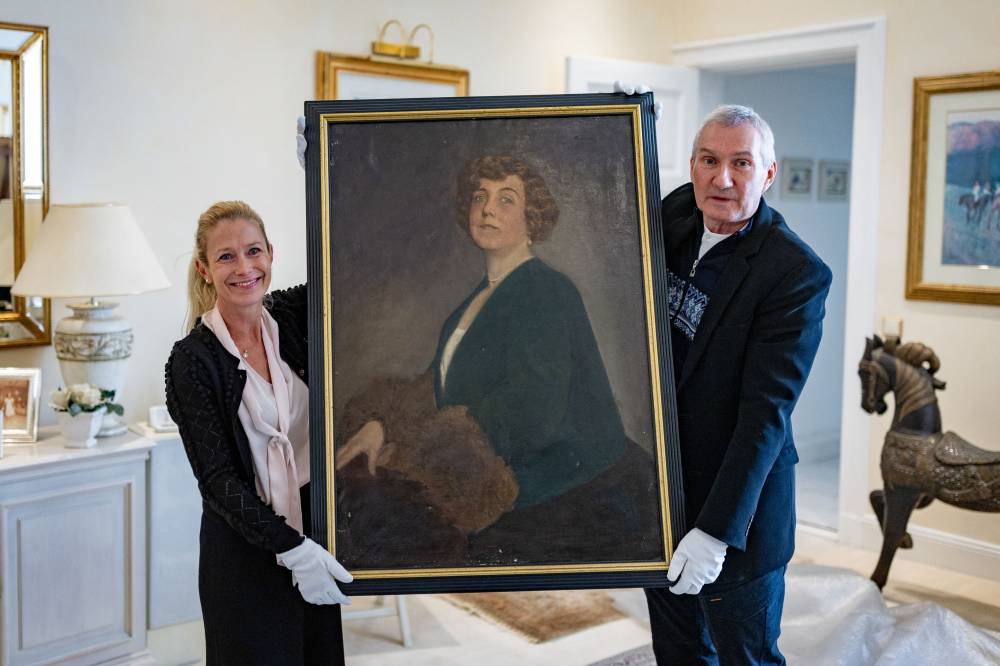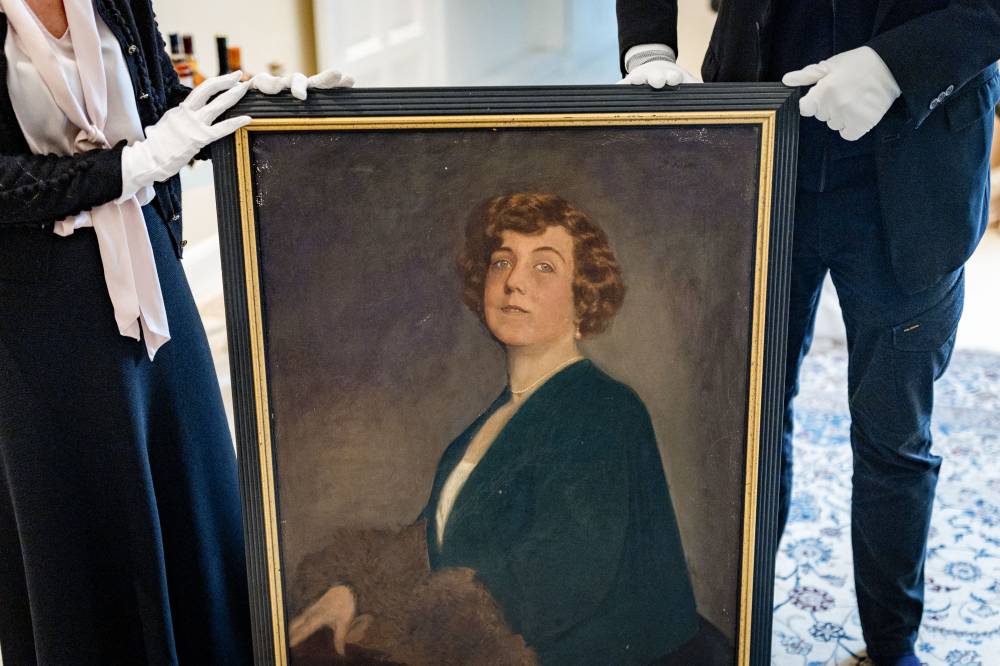Rediscovered painting shows madam of notorious Nazi brothel

A long-lost oil painting of Nazi-era Berlin’s most notorious brothel madam, Kitty Schmidt, has been rediscovered and was presented to the public in the German capital. Madam Kitty’s opulent salon, located in an upscale Berlin neighborhood, was a den of espionage wired by the Nazis to spy on prominent visitors.
“Between 1939 and 1942, diplomats, foreign journalists, and even high-ranking Nazi officials were spied on without their knowledge,” Urs Brunner, the new owner of the painting, tells AFP.
The search for Madam Kitty
A woman who bought the painting on the cheap at a Berlin junk shop in 1999 recently contacted Brunner and fellow author Julia Schrammel. The two Austrian writers are co-authors of the 2020 book “Kitty’s Salon: Sex, Spying and Surveillance in the Third Reich.”
The painting’s owner only discovered that it depicted the infamous madam after a digital image search led her to the website for the book. The writers had long been searching for the painting, which they knew existed from old photographs. “I wrote to almost every auction house and antique dealer in Berlin. The fact that we found it is very important to us,” Schrammel says of their hunt for the painting.

“There are only a handful of photos of Kitty, and they are all in black and white.”
Not a die-hard Nazi
Brunner said the writers hope that the rediscovered oil painting will find a home in a museum, describing Madame Kitty and her brothel as “part of Berlin’s city history.” The portrait appears to depict Madame Kitty in her 40s, although “she always pretended to be younger than she was,” Brunner tells AFP.
“She was always very well-dressed and wore a lot of makeup.”
According to Brunner, it is unclear whether the brothel owner—who died in 1954—had willingly worked with the Nazis or was forced into collaboration. Brunner says she never joined the Nazi party and did not appear to hold antisemitic views—although “some of Nazi Germany’s biggest war criminals came and went at her home, and she got along with them.”
“She was probably a profiteer and an opportunist, but not a die-hard Nazi, according to what we know,” Brunner says.
AFP is one of the world's three major news agencies, and the only European one. Its mission is to provide rapid, comprehensive, impartial and verified coverage of the news and issues that shape our daily lives.

















